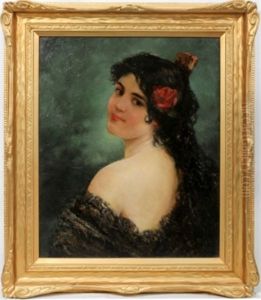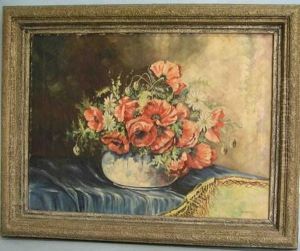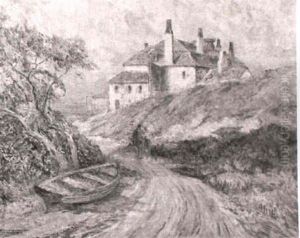Raphael Beck Paintings
Raphael Beck was an American painter, illustrator, and designer, born in 1858 in Buffalo, New York. Although not as widely recognized as some of his contemporaries, Beck made significant contributions to the American art scene of the late 19th and early 20th centuries. His work spanned various mediums, including painting, illustration, and mural work, showcasing a versatile talent that was engaged with the artistic and cultural developments of his time.
Educated at the Art Students League of New York, Beck was part of the vibrant New York art community, where he was exposed to a variety of styles and influences. Despite this, he often drew inspiration from the American landscape and the burgeoning sense of national identity that characterized the period. His style was reflective of the transitional period in American art, moving from the detailed, narrative-driven works of the 19th century to the more expressive and abstract tendencies of the 20th century.
Beck's most notable commission came in 1901 when he was selected to create the official poster for the Pan-American Exposition held in Buffalo, New York. This event was a World's Fair that celebrated the Americas and showcased the latest technological innovations and cultural achievements. Beck's design featured an allegorical representation of the Americas, emphasizing unity and progress, and became one of the exposition's enduring symbols. This commission placed Beck at the center of a significant cultural event and highlighted his skills as a designer and illustrator.
Throughout his career, Raphael Beck continued to work on a variety of projects, including murals for public buildings and illustrations for books and magazines. Despite the diversity of his work, he maintained a commitment to themes of American identity and progress, which resonated with the public and his peers. Beck's contribution to American art, particularly in the realm of illustration and public art, reflects the broader shifts in American culture during his lifetime.
Raphael Beck passed away in 1947, leaving behind a legacy that, while perhaps not as celebrated as some of his peers, represents an important facet of American art history. His work captures the spirit of an era that was grappling with its identity and place in the world, and his contributions continue to be studied by those interested in the evolution of American art and culture.


